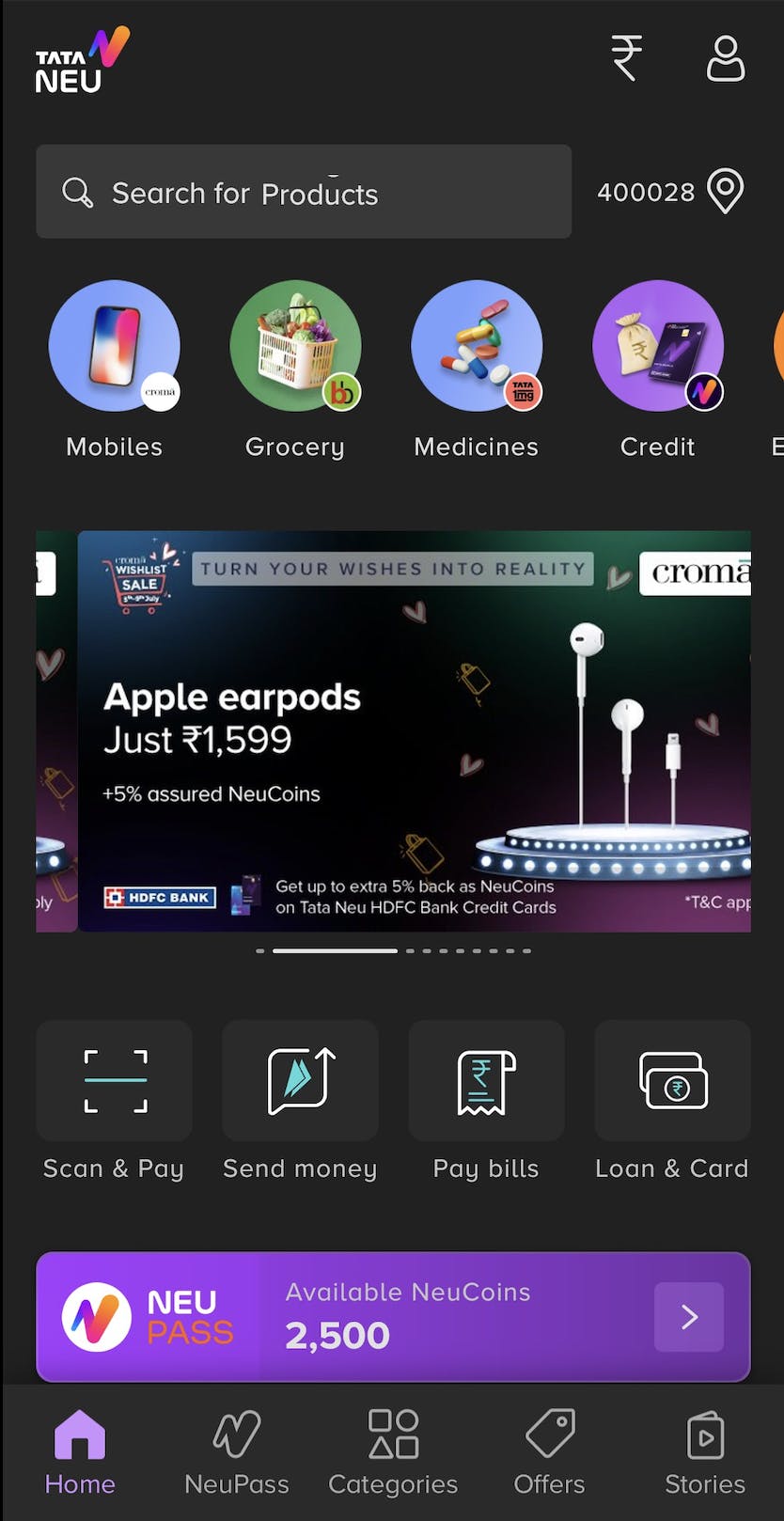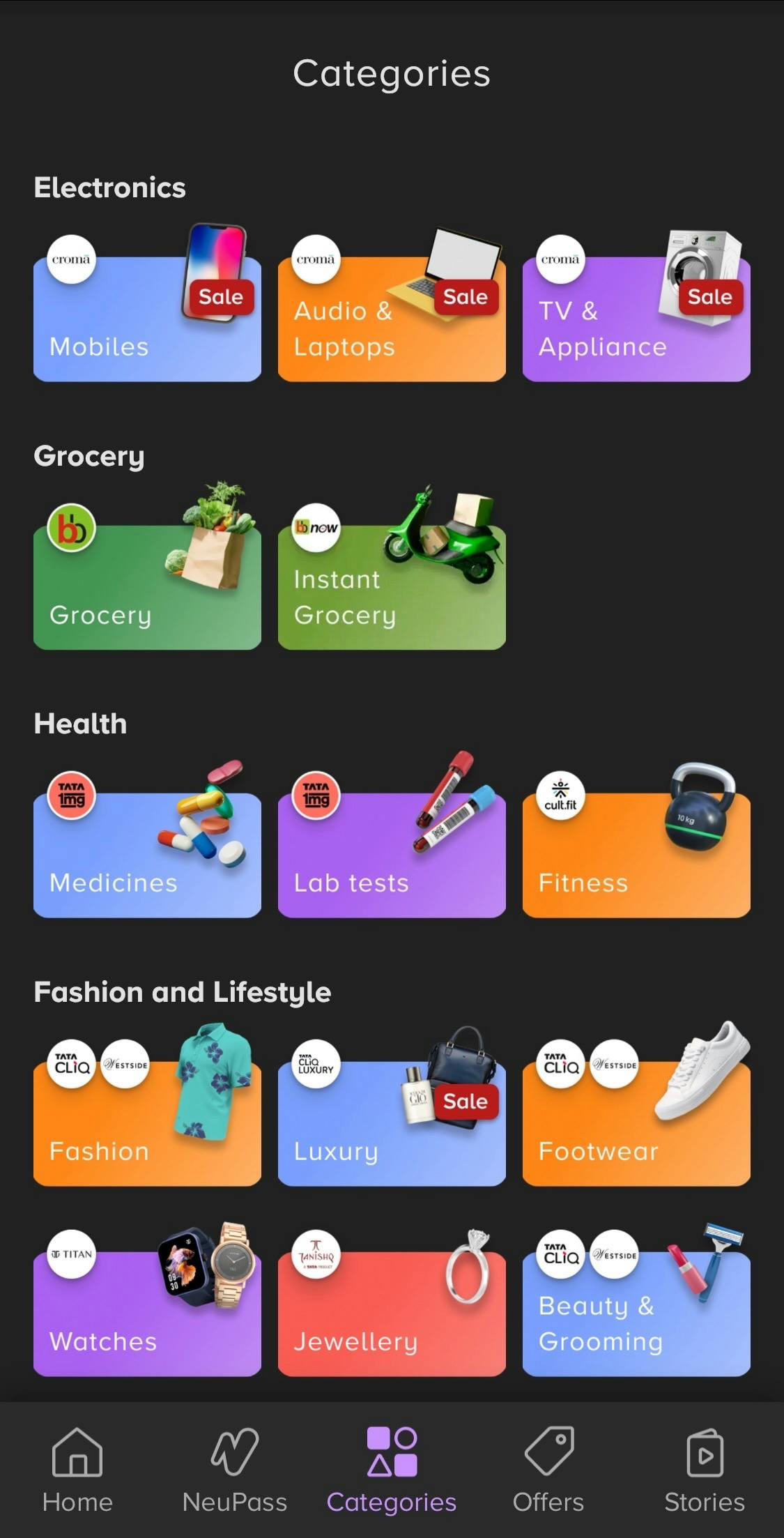Tata Digital Harmonizes a Variety of Data, Powered by MongoDB Atlas
July 19, 2023 | Updated: March 18, 2025
Tata Digital was founded in March 2019 as the newest company under India’s Tata Group. Tata Digital is the business’s digital backbone and unites all its consumer companies under one umbrella offering consumers a One Tata experience.
At a MongoDB Day in Mumbai in 2023, Pavan Podila, Tata Digital’s Chief Architect, spoke about how they are “rewiring the digital circuitry of their ecosystem” with support from MongoDB's modern database.
Rising to new heights with a super app

Tata has many consumer brands, such as IHCL (Taj Hotels), AirAsia India, Westside, Croma, Tata CliQ, BigBasket, Tata 1MG to name a few. Tata Neu is a super-app bringing all these brands together.
“We’re building a common digital platform so that each brand doesn’t have to reinvent itself, and they come together under one super-app, one common consumer experience,” Pavan said. “That’s Tata Neu.”
Pavan continued by presenting three use cases where MongoDB is used extensively.
NeuPass
NeuPass is a loyalty program – for everything from groceries and electronics to fashion and payments, health and fitness to flights and hotels – accessed through the Tata Neu app.

Each of the Tata consumer brands formerly had their own loyalty program that could cause loyal customers to be fragmented across group companies. To make the customers’ experience and their rewards more seamless, NeuPass combines the loyalty program of all the brands under one unique name. With NeuPass, consumers can purchase from any brand and earn points called NeuCoins, which can be used for purchases across brands. NeuPass has over 75 million members and continues to grow.
Adding to the complexity, loyalty programs have tiers based on member spending habits. For example, AirAsia India has Aviator, Explorer, Highflyer and Jetsetter levels.
Each loyalty program has unique attributes – tiers, benefits, rules, constraints – requiring storage for a complex document structure.
MongoDB has enabled the creation of one unique way of storing data from all the programs. In discussing this, Pavan said, “We have homogenized all of these – normalized the subscriptions across the entire brand range to have one unique way of storing them. So now we know which brand you’re talking to, how this brand should be treated in terms of transactions, and so on.”
PIM - Product information management
One of the big challenges with the Tata Neu ecosystem is the range of brands and products with different hierarchies.
In explaining the challenge, Pavan said, “When we try to combine everything with a product catalog or common unified store, it creates a challenge for the consumer. The question becomes, ‘How do you present this information?’ If you have a single app focused on electronics, you have a clear way of presenting information. But if you have 40 different brands, each with its own way of representing information, there’s no common way of representing anything. So it becomes challenging as an experience layer idea as well.”
MongoDB has played a key role in creating a unified product catalog.
“We have more than 10 million SKU (stock keeping units) across multiple brands,” Pavan noted. “We've seen advanced data structures for our products, and it's likely they will become even more intricate as we grow. We have made extensive use of the MongoDB Aggregation pipeline to arrange and manage our data – We've also used MongoDB's native time series functionality because inventory is a time-bound data structure as it changes."
Offer engine
Offer Engine has been around in various forms since around 2015. It’s a pivotal part of the app that manages 40 plus brands. It generates different offers and promotions according to the product purchased.
The amount of complexity of the data for creating offers leads to challenges.
“If you look at Big Basket, Croma or our other brands, we are pumping out tons of offers daily across India,” Pavan said. The number of offers in the pipeline daily is massive. We must somehow combine all the factors and present them in ways with fast user response times when we show them the payments page. Constraints, rules and policies determine how and to whom the offer should be applied.”
Pavan noted that there are many collections and documents within Offer Engine. At the time of the presentation, it was 405 million documents and was growing daily. Across the businesses, they send out between 50,000 and 250,000 offers each day. With so much churn and cross-cloud data transmission, there are very complex data structures.
“You can imagine the kind of collections we have in terms of organizing data, sharding, replication and aggregation in this situation,” Pavan said. “MongoDB helps us get there much faster.”